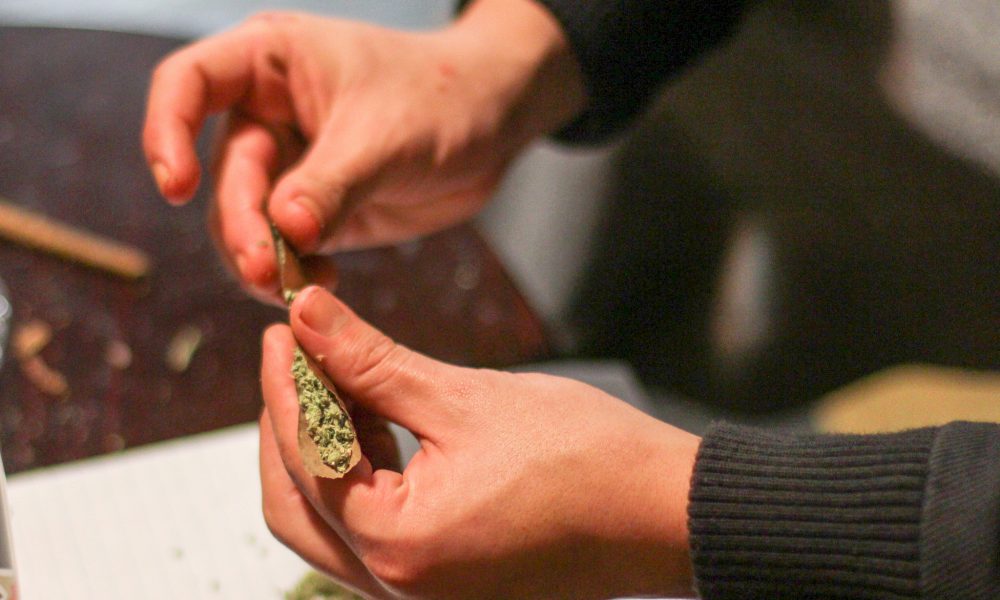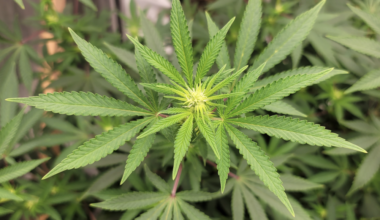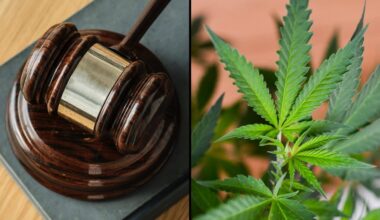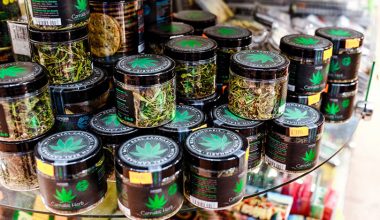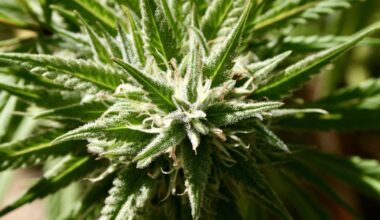Wyoming activists have cleared another hurdle toward getting a pair of marijuana initiatives before voters on the 2022 ballot.
Advocates needed to turn in at least 100 valid signatures per measure to the secretary of state’s office to formally get the process started on their proposals to decriminalize cannabis and legalize medical marijuana, and they turned in more than double that amount. This week, the office confirmed that the campaign had met the requirement and cleared them for broad signature gathering once the attorney general’s office approves summary language and petition packets.
The initiatives are being backed by the national Libertarian Party, as well as Wyoming NORML. The effort launched after state lawmakers advanced—but failed to pass—a bill to legalize marijuana this session.
Christine Stenquist, the campaign’s senior strategist, told Marijuana Moment that they have a combination of volunteers and paid canvassers who will be working to collect the required 41,776 valid signatures from registered voters per measure by February 14 to qualify for the ballot.
“We know what districts we need to hit. We know what counties. We know our numbers. We know even the people who are registered voters were likely to support us,” Stenquist said. “It’s a very surgical campaign.”
“If the ballot measures pass this final hurdle,” a press release from the Libertarian Party said, “Wyoming voters will have a chance to let their voices be heard in November of 2022 by voting to legalize medical cannabis and decriminalize cannabis for personal use.”
They said they expect the attorney general’s summary language to be finalized, and petitions to be printed, “in the coming weeks.”
For the medical proposal, patients would be able to purchase and possess up to four ounces of flower and 20 grams of “medical marijuana-derived products” in a 30-day period.
People with any of more than a dozen qualifying conditions—including cancer, glaucoma, HIV, multiple sclerosis, Parkinson’s disease and dementia—would also be able to cultivate up to eight mature plants for personal use.
The Department of Revenue’s Liquor Division would be responsible for licensing marijuana businesses. The division would be required to promulgate rules by July 1, 2023.
The division “shall regulate the acquisition, growth, cultivation, extraction, production, processing, manufacturing, testing, distribution, retail sales, licensing, transportation and taxation of medical marijuana and medical marijuana-derived products and the operation of medical marijuana establishments in a manor that will not prove excessively burdensome for Patients to access medical marijuana or medical marijuana-derived products nor burdensome for licensed healthcare providers to certify their Patients,” the text of the measure states.
Meanwhile, activists’ separate decriminalization measure would impose small fines on people possessing up to four ounces of marijuana, without the threat of jail time. A first and second offense would be considered a misdemeanor punishable by a $50 fine, while a third and any subsequent offense would penalized by a $75 fine. Cultivating marijuana would be punishable by a maximum $200 fine.
People caught in possession of marijuana in excess of the four ounce limit would face a maximum $500 fine. Those who are found to be under the influence of cannabis could be fined $50.
A bill to legalize and regulate cannabis for adult use in Wyoming advanced out of a House committee in March, but it did not move further in the legislature by the end of the session.
A poll released in December found that 54 percent of state residents support allowing “adults in Wyoming to legally possess marijuana for personal use.” Presumably, that would mean that the more moderate proposals stand to pass if they’re certified for the ballot.
Wyoming’s neighbors Montana and South Dakota were among several states that approved marijuana legalization ballot measures in November.
Meanwhile, the Wyoming legalization legislation, which was backed by the Republican chair of the House Judiciary Committee, would have allowed adults 21 and older to purchase and possess up to three ounces of marijuana and cultivate up to 12 mature plants for personal use.
The measure was also cosponsored by the House speaker and other top GOP lawmakers.
Looking ahead to 2022, Wyoming isn’t the only state where voters could soon see cannabis reform on the ballot. Activists in roughly a dozen states are moving to put cannabis legalization proposals directly before voters in 2022.
Advocates in Oklahoma are preparing two complementary ballot initiatives, one that would legalize adult-use cannabis and another that would make changes to the state’s massive medical marijuana system.
Idaho officials have recently cleared activists to begin collecting signatures for a revised initiative to legalize possession of marijuana that they hope to place before voters on the 2022 ballot. Advocates in the state are also working to qualify a separate measure to legalize medical cannabis for ballot access.
In South Dakota, activists last month filed four separate cannabis ballot measures for 2022.
North Dakota activists are formulating plans for a marijuana legalization measure after lawmakers failed to enact the reform this session.
A group of Missouri marijuana activists recently filed several separate initiatives to put marijuana reform on the state’s 2022 ballot, a move that comes as other advocacy groups are preparing additional efforts to collect signatures for cannabis ballot petitions of their own. Meanwhile, still other activists are focusing on getting the legislature to pass a resolution to place the question of legalization before voters next year.
Arkansas activists are currently collecting signatures for a marijuana legalization measure they want to put before voters next November.
In Maryland, the House speaker has pledged to pass legislation to place a marijuana legalization referendum on the 2022 ballot.
Ohio activists awaiting official clearance to collect signatures for a statewide ballot measure that would effectively force the legislature to consider cannabis reform. Meanwhile, other groups also recently qualified several measure to decriminalize cannabis to appear on local 2021 ballots.
A newly established Texas progressive group unveiled a campaign recently to put an initiative to decriminalize marijuana possession and ban no-knock warrants on this November’s ballot in Austin.
Advocates are also working to put marijuana initiatives on local ballots in South Carolina and West Virginia.
Meanwhile, the Florida Supreme Court has blocked two cannabis legalization initiatives for which activists had already collected thousands of signatures.
Nebraska marijuana activists are gearing up for a “mass scale” campaign to put medical cannabis legalization on the state’s 2022 ballot after the legislature failed to pass a bill to enact the reform this session.
And since the state Supreme Court invalidated a measure that qualified for the 2020 ballot based on a statutory challenge, voters can expect to see two complementary initiatives that are currently being vetted by lawyers to ensure that opponents can’t leverage the legal system to block the policy change again.
SXSW Wants You To Vote On Dozens Of Marijuana And Psychedelics Panels For 2022 Event
Photo courtesy of Philip Steffan.
Medical Disclaimer:
The information provided in these blog posts is intended for general informational and educational purposes only. It is not a substitute for professional medical advice, diagnosis, or treatment. Always seek the advice of your physician or other qualified healthcare provider with any questions you may have regarding a medical condition. The use of any information provided in these blog posts is solely at your own risk. The authors and the website do not recommend or endorse any specific products, treatments, or procedures mentioned. Reliance on any information in these blog posts is solely at your own discretion.
